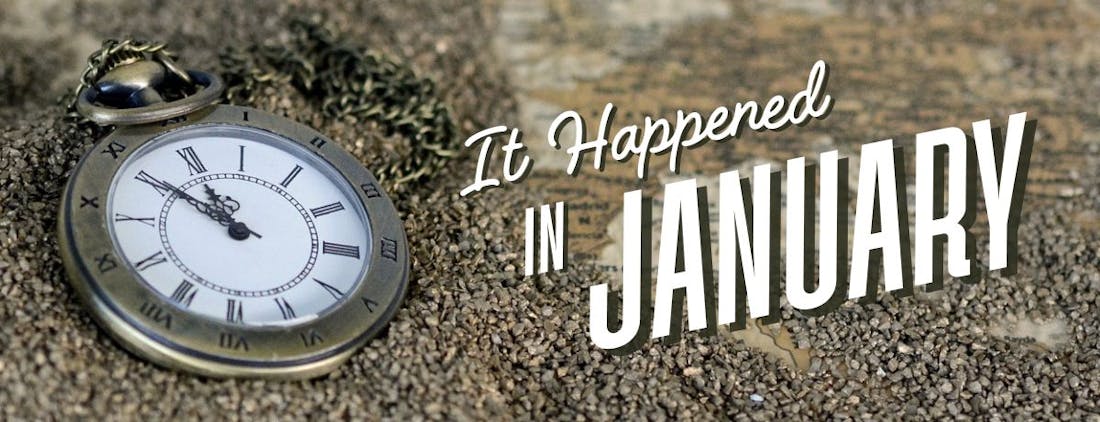
View Historical Events by Day: What Happened on January 9 in History?
Explore the historical events that shaped our world on January 9th. From major milestones to cultural achievements, see what happened on this day in history. Dates for earlier events may be approximate.
Note: Sources for the historical content shown, include research and reviews of relevant Online History Resources or printed material. When possible, we show a link to a source which provides additional or unique perspective about the event.
We do our best to provide accurate information but would appreciate being notified if any incorrect information is found. You may do so by using our Feedback link.
Birth of Roman statesman and orator, Publius Clodius Pulcher.
Sultan Malik Shah I, ruler of the Seljuk Empire, dies, leading to a period of internal strife.
King Henry of Trastámara becomes King Henry II of Castile after defeating his half-brother, King Peter, at the Battle of Campo de Montiel.
King Peter I of Portugal leads a successful expedition to conquer the city of Badajoz in Spain.
The Treaty of Calais is renewed, extending the truce between England and France.
The Parliament of England convenes in Westminster, focusing on financial matters and reforms.
The Treaty of Neuberg is signed, ending a war between Austria and Bavaria.
The Golden Horde under Tokhtamysh attacks Moscow, leading to the Battle of Kulikovo.
Jan Žižka leads the Hussites in the Battle of Sudoměř, defeating King Wenceslaus IV's forces.
The trial of Joan of Arc begins in Rouen, France, presided over by an ecclesiastical court.
Albert II of Habsburg is crowned Holy Roman Emperor in Rome.
Pope Leo X excommunicates Martin Luther from the Catholic Church.
England and Scotland sign the Treaty of Greenwich, aiming to unite the two kingdoms through the marriage of King Henry VIII's son, Edward, to Mary, Queen of Scots.
Archbishop William Laud is executed in London for high treason during the English Civil War.
Swedish troops under Charles X Gustav invade Denmark during the Dano-Swedish War.
England's King Charles II grants a trading charter to the Royal African Company to facilitate the Atlantic slave trade.
The British Museum opens its doors to the public in Montagu House, London.
Charles Edward Stuart, known as Bonnie Prince Charlie, flees to France following his failed Jacobite Rising in Scotland.
The first successful balloon flight in America takes place in Philadelphia, piloted by Jean-Pierre Blanchard.
Upper Canada and Lower Canada are merged into the Province of Canada by an Act of Union.
Mississippi becomes the second state to secede from the Union before the American Civil War.
French poet Arthur Rimbaud decides to stop writing at the age of 18.
Record Snow and cold hit the Northern Plains. The winter of 1886–1887, also known as the Big Die-Up, was extremely harsh for much of continental North America, especially the northern plains of the United States where the cattle industry was decimated. The cattle, already weak from lack of forage from the previous dry summer became weaker as they trudged through the deepening snow in search for food. Hundreds of thousands of cattle are said to have died, Montana ranchers alone lost an estimated 362,000 head of cattle, more than half the territory's herd. The disaster led to a major reorganization of ranching and ending the open range era. More
The Russian Revolution of 1905 begins as a peaceful protest by Russian workers in St. Petersburg turns violent.






.png?auto=format,compress&fit=crop&w=280&h=280&q=93)








.jpg?format,compress&fit=crop&w=280&h=280&q=93)
.jpg?format,compress&fit=crop&w=280&h=280&q=93)









